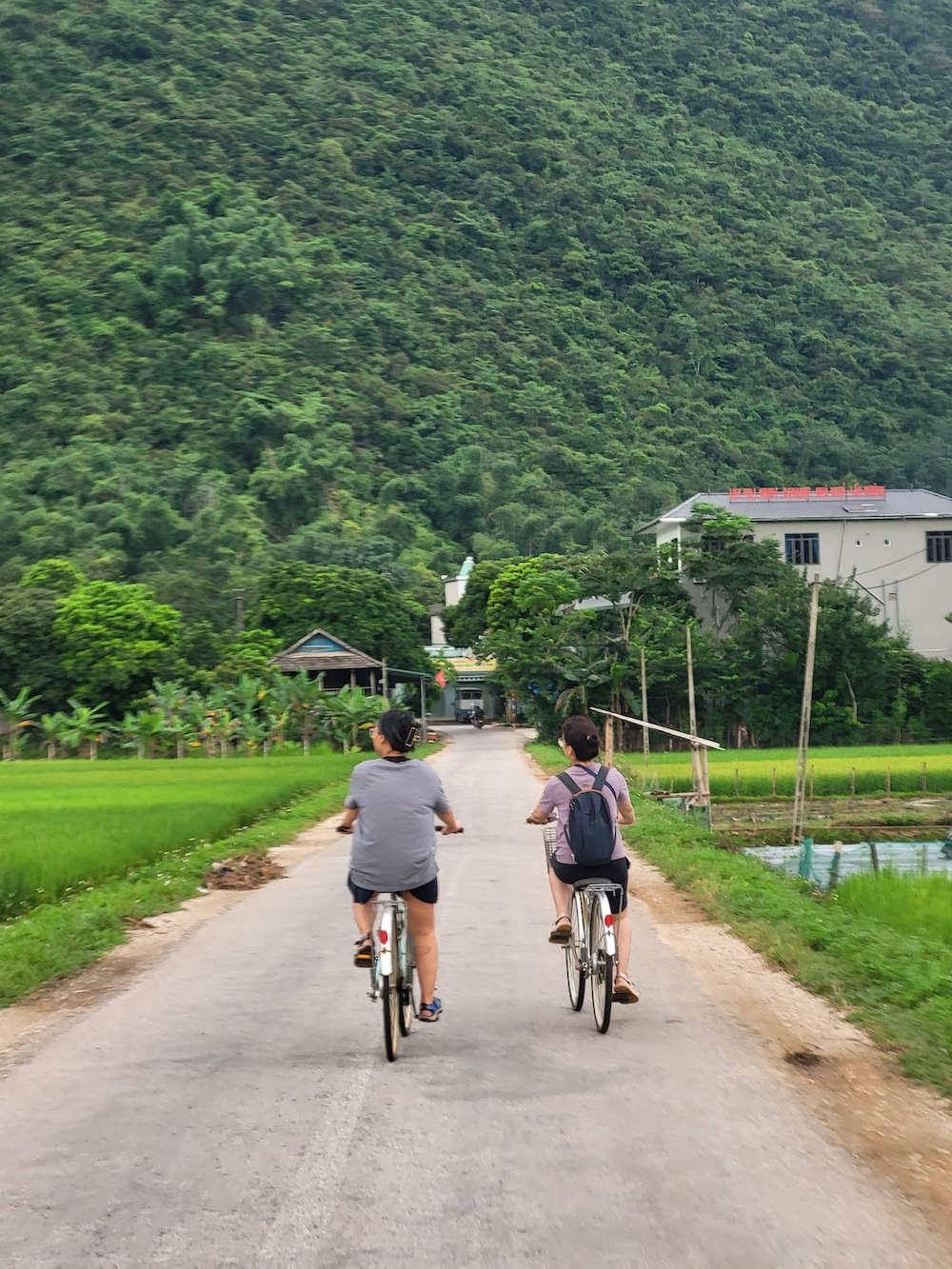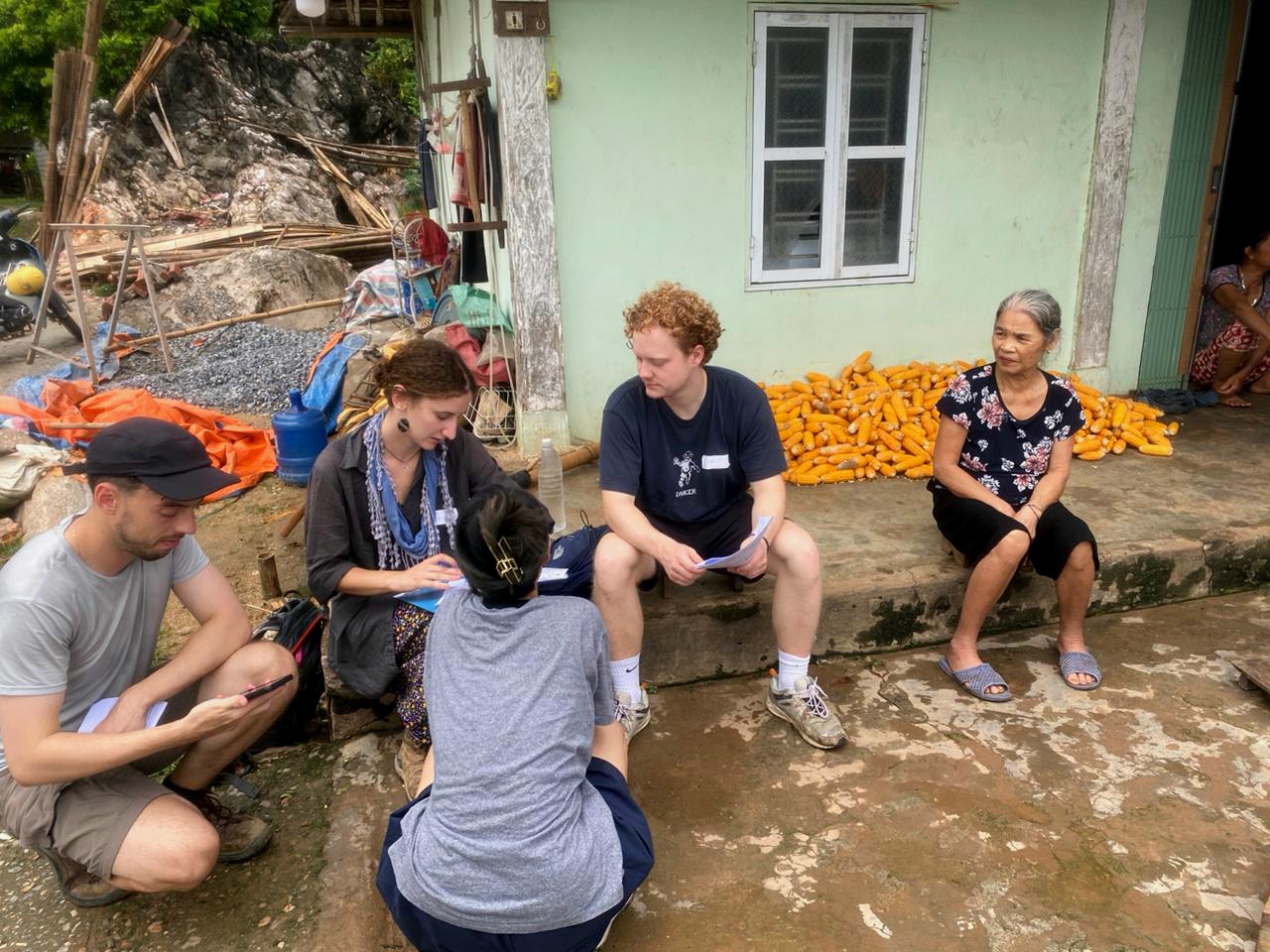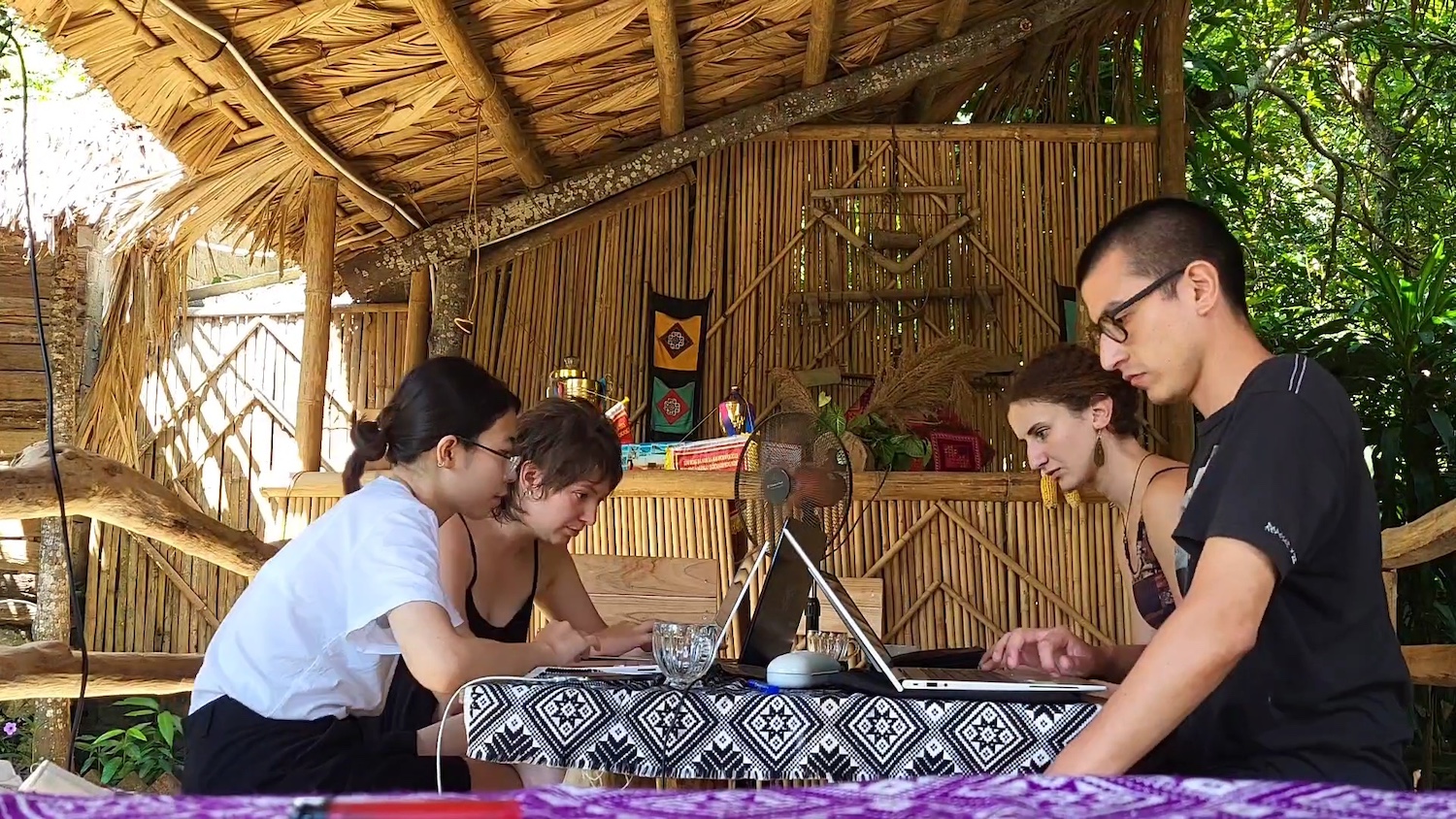Plan B and Beyond: Our Journey of Adaptation during the Fieldwork
Mascha Graupe; Hilda Nurbayyanti; Duong Huyen Trang Nguyen; Deniz Tekin; Alvaro Pastor
Embarking on a fieldwork expedition in Vietnam is an exciting endeavor, but the journey begins long before we set foot in the country. In our quest to gather valuable insights, we engaged in thorough preparations, conducting desk-based research and deliberative discussions within our group. This initial stage laid the foundation for our research, shaped our survey questions, and ensured we were well-equipped to navigate the diverse and socialist context of Vietnam.
The first step in our preparation was to grasp the political, environmental, spatial and social context of our study area. This involved immersing ourselves in a wealth of desk-based research and participating in preparatory seminars, where we unearthed critical information about Vietnam’s unique characteristics. From the country’s socialist structure to the high diversity of ethnic groups, we explored the nuances that make Vietnam a fascinating and complex research setting.
With an initial understanding of the study area, we embarked on the task of crafting survey questions. Our goal was to ensure that these questions would provide us with the necessary information to address our research objectives. In particular, our research aims to identify factors that influence involvement in tourism activities such as accessibility and language barrier, further we plan to address how differences in livelihoods are linked to land use change. To achieve this, we operationalized the livelihood concept, tailoring it to the Vietnamese context. This involved adapting the concept to the local realities and needs, reflecting the intricacies we uncovered during our desk-based research. Designing the survey was not just about formulating questions; it was also about creating a structure that was logical and sensitive to the specific dynamics of Vietnam’s rural areas. We strived to make the survey easy to navigate for both the interviewer and the interviewee; therefore, we considered the order of questions and their flow to ensure a smooth and efficient interviewing process. After that secondary research and planning, we felt prepared to enter the field trip, ready to start our data collection.
The first day in the field was an eye-opener. Our initial confidence was shaken as we encountered various challenges. Some of us didn’t have any fieldwork experience before this trip and for most of us, this was the first fieldwork involving a language barrier. Approaching the locals and relying on translators to communicate was quite challenging and felt awkward at first. In order to conduct the interviews, sometimes it felt like we were bargaining in, and interrupting people’s work or spare time, then we’d be asking them questions as strangers, including even sensitive ones such as their income. Further, the conversations were taking usually around one hour which is a considerable time that is taken from their daily lives. In short, it was at first quite challenging to adapt to the new way of interactions.
Overall, we were talking with the local people through our Vietnamese colleagues who were translating our questions and relayed the responses from the locals. We realized that translation was a core component of our research hence, on the very first night of fieldwork, we sat down with one of the translators to ensure we were all aligned with our objectives. We adjusted our surveys based on their comments and insights. We questioned whether our meticulously designed surveys were going to work in practice. Moreover, we realized that some questions felt repetitive, and the surveys seemed longer than we had anticipated. Adjustments were necessary to maintain the respondents’ interest and cooperation. We learned that the surveys had to be adapted to be culturally sensitive, making sure we weren’t inadvertently causing discomfort or offense to the interviewees, especially when the translator communicated with them. Further, our data collection process faced another hurdle when we struggled with importing data manually to an Excel file. We realized that switching to a more user-friendly data import platform, like Google Forms, was necessary. This change streamlined our data entry process and allowed for better data organization.
For various reasons, one of us had to work and make contributions remotely in Leuven. Indeed, the time zone difference and the dense yet flexible schedule during our fieldwork had altered our daily online meeting plan. However, we successfully maintained smooth communication through a group chat and effectively distributed the work that can be done online. From Leuven to Hoa Binh, we were able to share our experiences; discuss challenges and help each other in the data analysis.
Further, during the interviews, we quickly realized that our roles extended far beyond simply posing questions and writing down responses. After a couple of interviews and learning how to communicate non-verbally the interviews were no longer met with apprehension but rather excitement. Despite the language barrier, we were not mere observers but active participants in this process through our facial reactions, the way we listened to them, and small number of Vietnamese words we learned. Overall, we needed to be flexible and adapt ourselves based on each interview. While some interviews had straightforward answers to our inquiries, providing the information we sought, others were more complex, with unstructured responses or unanswered questions. However, engaging directly with individuals from various backgrounds presented us with opportunity to immerse ourselves in their lives and culture, each conversation became a unique portal into understanding lived experiences. From conducting interviews in cities to serene rural landscapes, every setting unveiled its own stories.
These interviews allow us to confirm certain drivers of involvement in tourism activities that we identify with our preliminary research. For example, communities that have higher involvement in tourism are the ones that are relatively closer to Hanoi and tourist attractions as well as have better transportation infrastructure like we expected. On the other hand, remote locations have spare or seasonal tourism involvement which increases their dependency on agricultural and forestry activities. Moreover, we gained new insights such as the high impact of state policies on forest land use. The state and local governments are actively trying to conserve forest land surrounding the villages by forbidding logging activities and giving incentives to local communities to conserve forest by allowing them to use the goods from the forest. However, there are cases where tourism booms change the agricultural and forest land into tourism infrastructure. All these takeaways add more nuances to the impacts of tourism on rural livelihoods and land use changes which are invaluable for sustainable tourism development in rural areas such as Hoa Bihn province.
During the fieldwork, we separated into two groups for three days during which some stayed at the lake village, Da Bia and others like our mapping group went up to a remote mountain village called Ban Sung. Those three days were one of the highlights of the trip for most of us. There were times when moments of profound connection arose when someone shared a deeply personal experience, a heartfelt account that resonated long after the interview concluded. The conversations were more than mere dialogues, people would narrate their happy and proud moments such as their ancestral ceremonies as well as their distressing and sad events like how their homes and lands got demolished due to landslides. These experiences gave us unforgettable memories and valuable knowledge for our research. For instance, involvement in tourism and the number of tourists in Ban Sung increased after the road construction, and tourism activities are closely connected with their cultural heritage. Further, we realized that land dynamics do not change just because of involvement in tourism but rather due to natural factors such as landslides and floods. At the same time, these encounters foster familiarity and would go beyond the research experience that we’re expecting before starting the fieldwork. All these moments broaden our understanding of human experiences, offering a tapestry of insights that continually enrich our perspective. Much reflecting is still left to be done to enable us to fully understand what we have learned during the fieldwork. As each story was unique to itself, our experiences and takeaways from the fieldwork are also very various since we all come from different backgrounds.
In a nutshell, after two weeks of fieldwork, we realized that not everything that we planned in our desk-based research went according to our plan. However, the fact that we needed to adjust our methods and methodology strategy during the first days was one of the most important lessons for us. We learned from each other, we were open-minded, and we collaborated with our Vietnamese colleagues to overcome our encountered language barriers and logistical difficulties. For the whole group, besides seeking to collect data to answer our research question, the possibility of finding creative solutions to create conversations and connect to the local people – instead of just asking a close-question survey – was our main goal. Even though collecting the information was difficult and sometimes we couldn’t complete the whole survey, our main goal as a group was always learning and growth. Every day we remind ourselves that the most important aspect of the fieldwork is to learn from our shortcomings, to not rush while doing the surveys, to respect everyone, and to make important decisions for the data analysis afterwards. Now, doing the analysis we realized that each survey and conversation revealed to us a unique perspective of the complexity of the livelihoods of rural areas in the Hoa Binh province that we had a fantastic opportunity to experience. So, this wasn’t just an academic endeavor, it was also a journey of learning and personal growth that will shape our understanding of what research fieldwork is.


